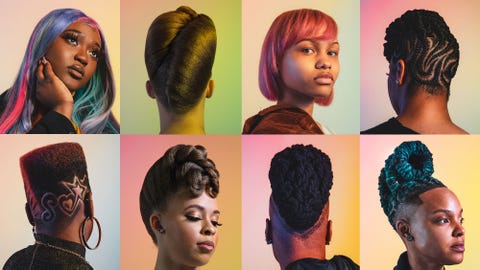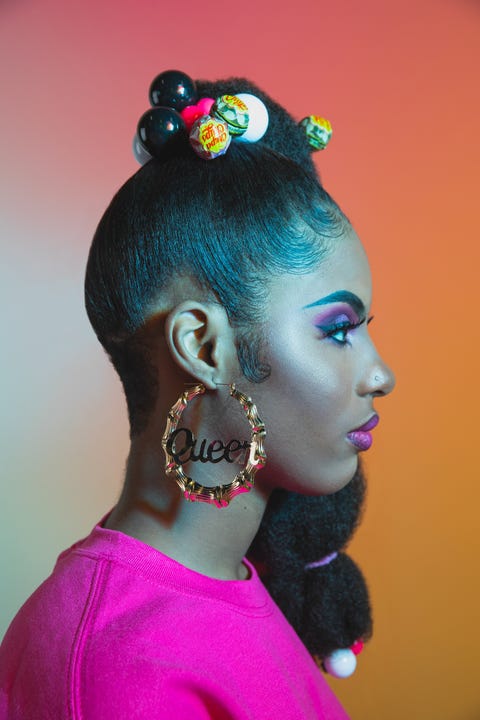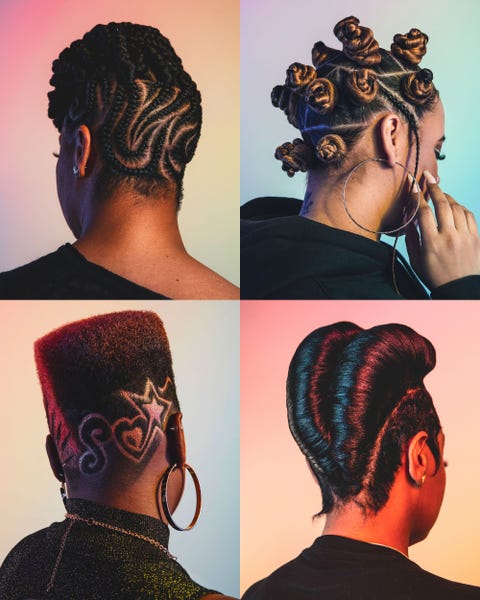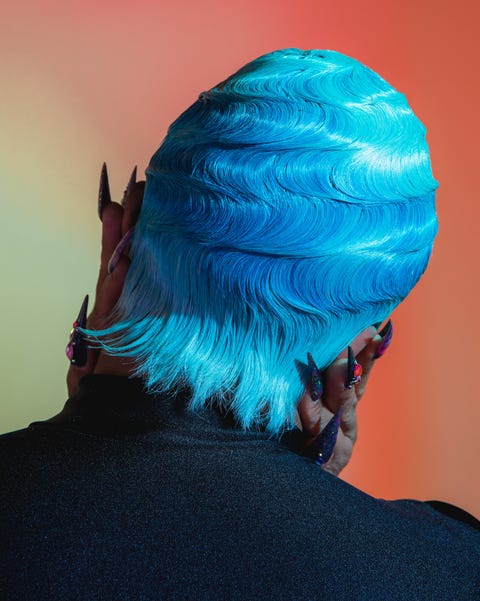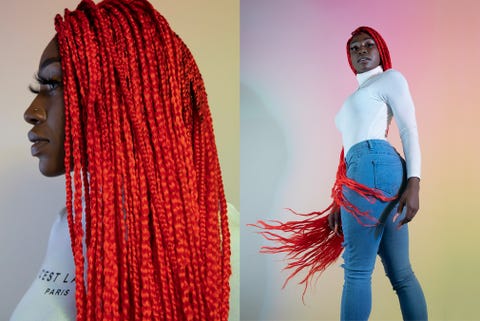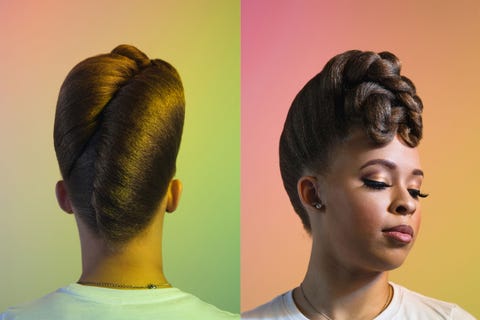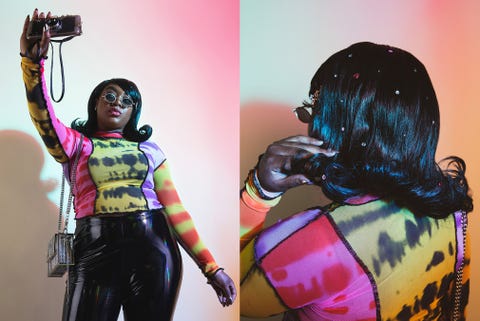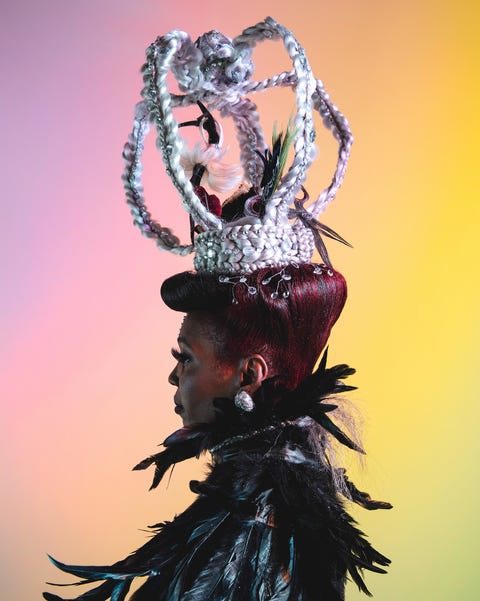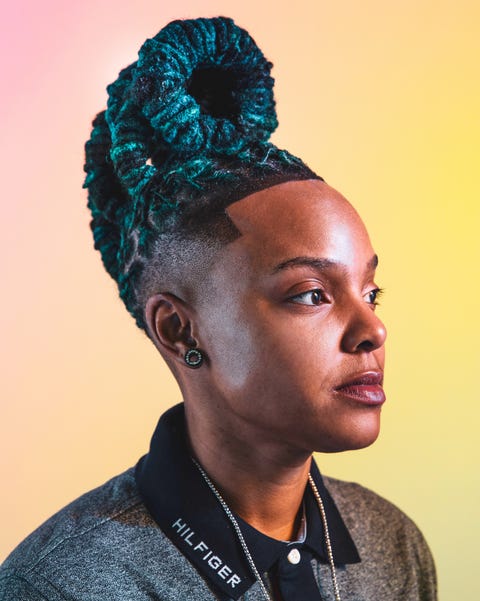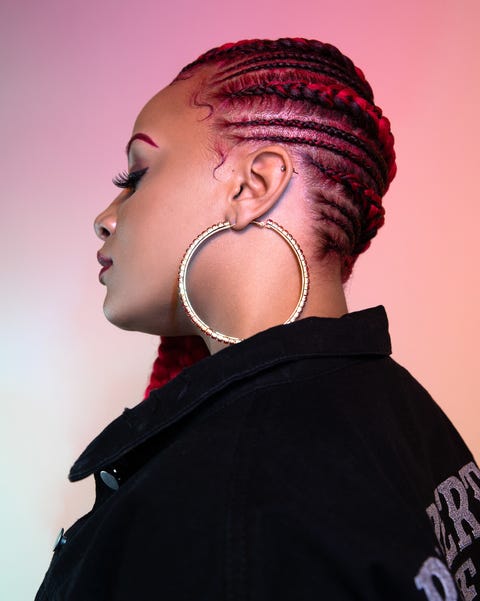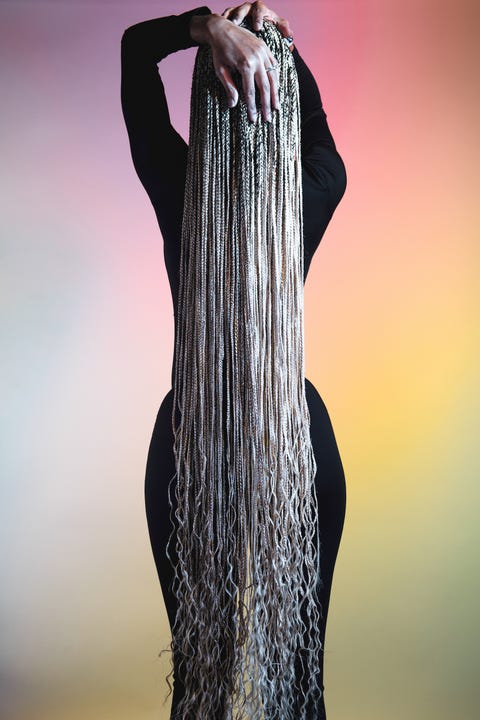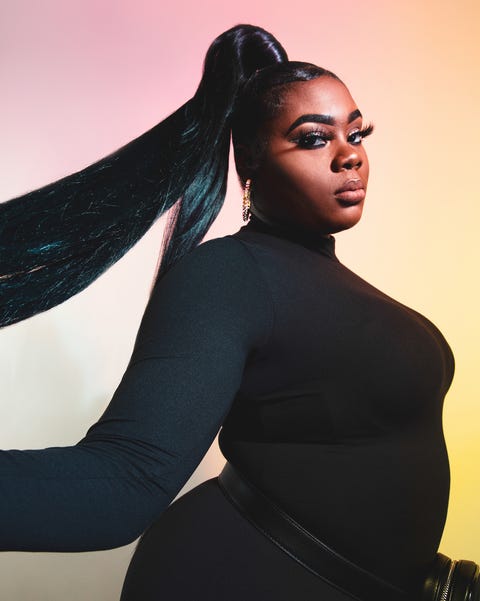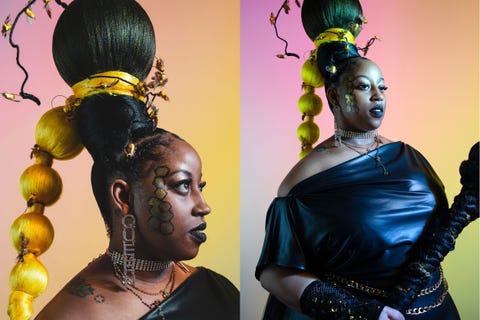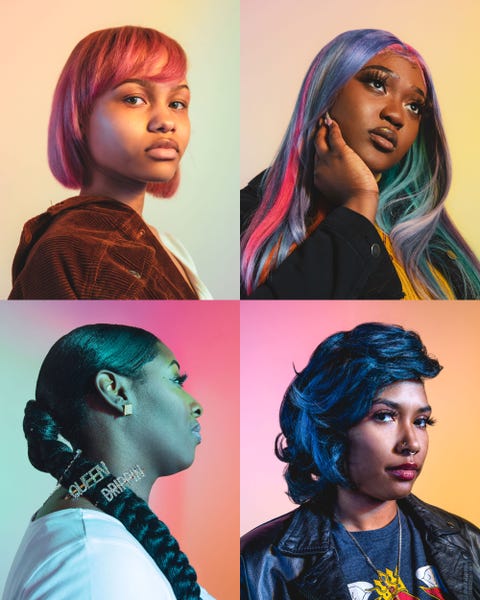Since its inception, the hair care industry in America has been rooted in the idea that Black hair, in its natural state, is unacceptable. Our great-grandfather Garret A. Morgan, an inventor known as “the Black Edison,” was one of the first people to discover chemical relaxers. His company, G.A. Morgan’s Hair Refiner, advertised products with phrases like “War declared on bad hair!” Translation: bad = natural. Historically speaking, relaxers, perms, weaves, and wigs were utilized in order to assimilate to white beauty standards. But only Black people could take the oppressive nature of this ideology and completely reframe the narrative. Nowhere is that reframing more apparent than at the Bronner Bros. International Beauty Show.
Founded by brothers Nathaniel and Arthur Bronner in 1947, the Atlanta-based show is the original mecca of haircare, where people of all textures gather to celebrate Black hair’s strength, beauty, and versatility. The first event, attended by roughly 300 people at a local Y.M.C.A., is now the largest multi-cultural beauty exhibition in the country. Each year, more than 30,000 experts and enthusiasts convene for three days to explore new trends, products, techniques, and innovations in Black beauty.
“The importance of the show lies in the knowledge it provides and the encouragement and exposure it gives to stylists and owners” says Shadida Patterson, owner of Distinctive Hair Salon in Bogart, Georgia. She’s been attending Bronner Bros. since 2010. While the trade show is renowned for its artful hair competitions (as seen in Chris Rock’s 2009 documentary Good Hair), its scope extends far beyond hair to cover the entirety of the beauty industry and includes hands-on classes and panels for the next generation of stylists, estheticians, and entrepreneurs.
Throughout its 74 year history, Bronner Bros. has helped Black stylists reclaim the Black hair care industry by promoting the individuals who are pushing the boundaries and inventing new processes, while also paying homage to the Black brothers and sisters who got us here. (Past Bronner Bros. speakers include Madame C.J. Walker, Jackie Robinson, and Martin Luther King, Jr.) Every show offers endless interpretations of traditional styles: finger waves cast in sonic blue, cornrows built to a crown, and Bantu knots jolted with alluring accessories, just like our ancestors but with a 21st-century spin.
As second-year attendee Prisca Ubah told us, “I was amazed by every vendor, the lively atmosphere, and the Black excellence that filled the room! It’s like a celebration of life every year! It’s truly something. I’ll plan to go every year as long as they have it!”
Last February, we traveled to Atlanta to photograph what would be the final in-person Bronner Bros. show—at least for a while. Earlier this month, the company announced that due to the Covid-19 pandemic it would be presenting the show virtually.
Attending Bronner Bros. provided us with a rare experience to witness Black hair being honored in ways that would have been inconceivable during our great-grandfather’s era. As twin sisters, with 4a/3c curls, we know that textured hair can be a pain point. It’s time-consuming, hard to manage, and up until recently, its existence has even been regulated. Thanks to the Crown Act, which the Bronner Bros. has used its platforms to promote and help pass, natural hair discrimination in housing, workplaces, and halls of education is now illegal in 7 states. (To end hair-based discrimination in your state and throughout the country, sign the petition at crownact.com.)
But what was even more rare is that in the Bronner Bros. world, we—Black creatives—were part of the majority. We were able to let our guard down and focus on creating work without the harmful creep of racial bias. Our subjects wholeheartedly believed in our skill and trusted our vision without any second guesses—a privilege rarely afforded to Black women.
The styles, trends, and treatments presented at Bronner Bros. always wind up in mainstream pop culture—from music videos and beauty campaigns to luxury fashion presentations.
Some of the looks we captured were wild, created specifically for the show’s Fantasy hair competition, some were profound ruminations on the past, all were unforgettable.

